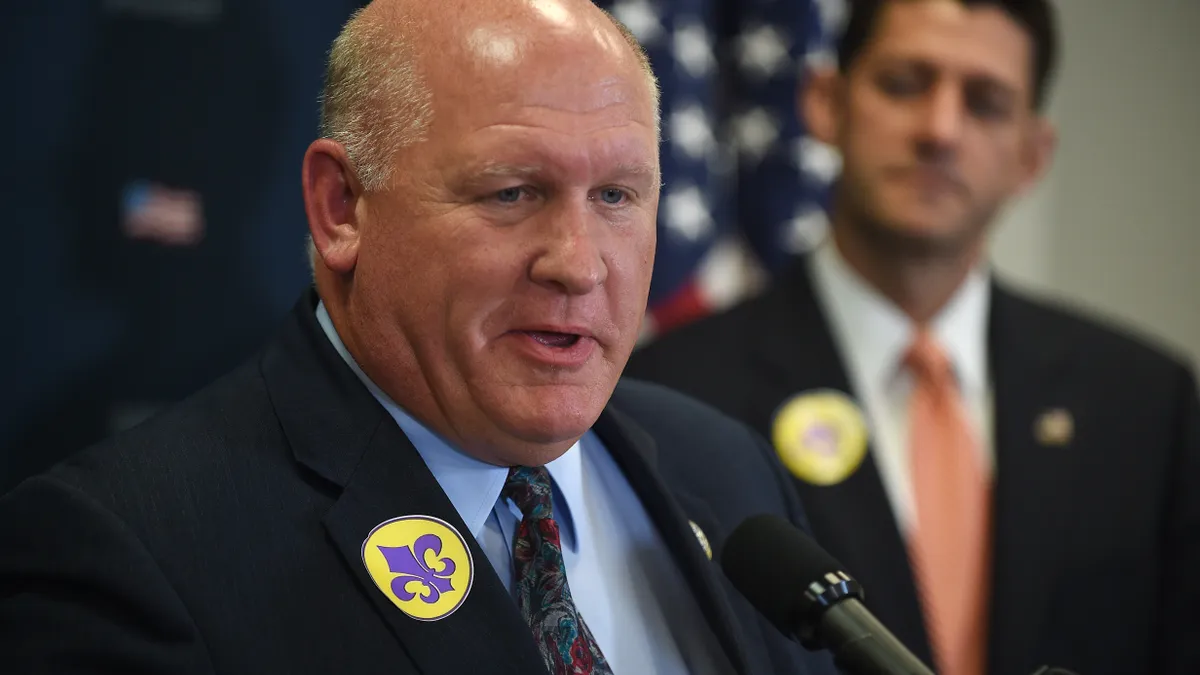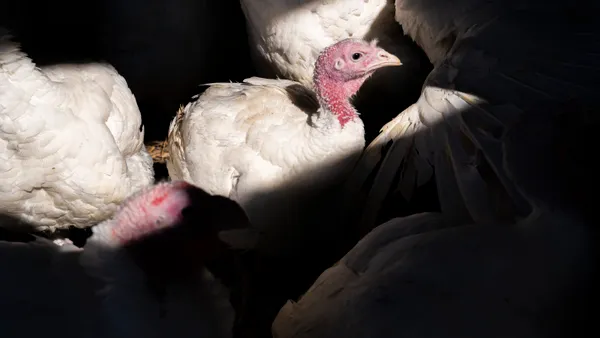Dive Brief:
- The upcoming farm bill will address California's contentious Proposition 12, the head of the House Agriculture Committee said Wednesday, as the pork industry warns the state's animal welfare law will contribute to rising food prices.
- Chairman Glenn Thompson said during a farm bill listening session in Redwood County, Minnesota, that a U.S. Supreme Court ruling upholding Prop 12 in May left open an opportunity for Congress to overturn the law.
- "The farm bill is the place to address this," said Thompson, a Republican from Pennsylvania. Republicans had separately introduced legislation in June to overturn Prop 12 and prevent states from passing similar laws intended to limit agriculture production.
Dive Insight:
The pork industry argues that California's law and others like it affect producers outside state borders due to the complex nature of processing supply chains. But in its ruling upholding Prop 12, the Supreme Court said that it's Congress' responsibility to legislate interstate commerce.
As producers look for new ways to overturn Prop 12, the Supreme Court decision is likely to breathe new life into a once-longshot effort by congressional Republicans to limit state regulation of agriculture production.
"The judicial branch is tired of doing the work of the legislative branch," Thompson said. "So we will be addressing the Prop 12 provisions."
At least nine states, including California, ban retail sales of pork raised using gestation crates or stipulate space requirements for animals, according to the U.S. Department of Agriculture. Some, like Massachusetts' Question 3, had been on hold until the Supreme Court weighed in on the Prop 12 ruling.
Although the nine states make up just 3% of total hog inventories, the National Pork Producers Council says operations outside those states are affected due to the complex nature of processing supply chains. As a result, the high cost of compliance could raise consumer prices or lead to intermittent shortages.
"What that will do to the economy, will wreck it," Thompson said of state limitations on agriculture production.











